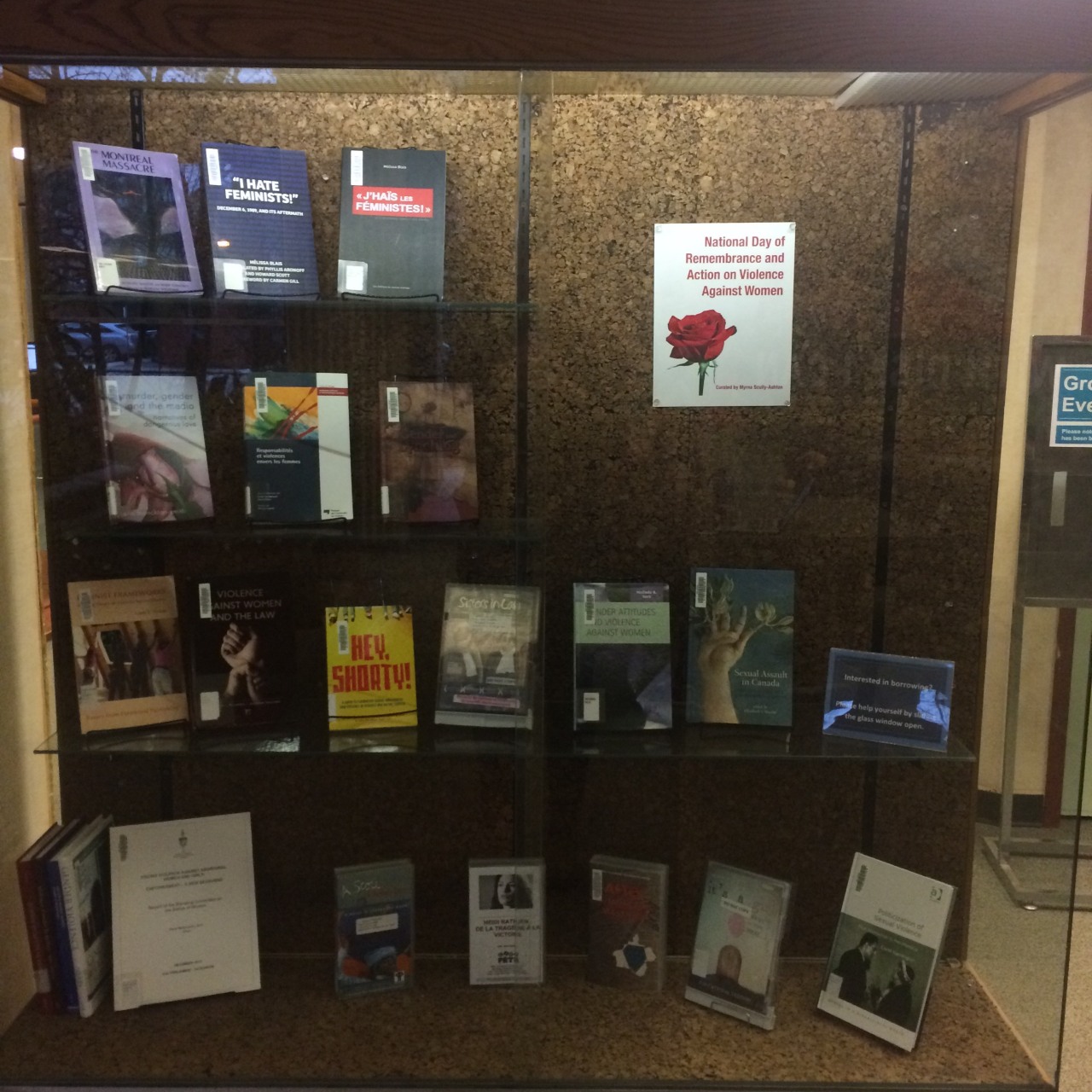December 6th marks the 27th anniversary of the École Polytechnique massacre when 14 women were murdered in an act of targeted, gender-based violence. The National Day of Remembrance and Action on Violence Against Women commemorates these 14 women and also serves as a call to action, asking Canadians to address violence against women across Canada and around the world.

The OISE Library collection includes materials which deal directly with the events and legacy of December 6th, 1989. The Montreal massacre, a collection edited by Louise Malette and Marie Chalouh, features feminist responses to the events of December 6th in diverse forms, ranging from poetry and newspaper letters to the editor, to essays and transcripts of speeches. Two documentary films After the Montreal massacre (also available via the National Film Board’s website) and Heidi Rathjen: de la tragédie à la victoire reflect on the École Polytechnique tragedy and incorporate testimony of Montreal Massacre survivors Sylvie Gagnon and Heidi Rathjen respectively. A more recent monograph J’haïs les féministes!: le 6 décembre 1989 et ses suites or “I hate feminists!”: December 6, 1989, and its aftermath by Mélissa Blais, which we carry in both French and English, reflects on the long term legacy of the Montreal Massacre and its positioning within feminist and anti-feminist discourse.
A more recent monograph J’haïs les féministes!: le 6 décembre 1989 et ses suites or “I hate feminists!”: December 6, 1989, and its aftermath by Mélissa Blais, which we carry in both French and English, reflects on the long term legacy of the Montreal Massacre and its positioning within feminist and anti-feminist discourse.
Students and researchers seeking to place the issue of violence against women in a broader context could turn to a variety of titles from the OISE Library collection. Violence against women and the law by David L. Richards and Jillienne Haglund takes a global comparative look at laws regarding violence against women in 196 countries considering the impact of both domestic and international policy on the issue. Gender violence: a cultural perspective by Sally Engle Merry examines gender violence from an anthropological perspective offering an introduction to the issue’s social and cultural implications, while also considering the efficacy of programs attempting to combat violence against women.
Teachers and teacher candidates looking to address the Montreal Massacre and the National Day of Remembrance and Action on Violence Against Women in the classroom might be interested in the activity and lesson plan resources created by the Status of Women, a federal government organization. Their website features an Educator’s Toolkit which includes discussion topics and additional resources appropriate for a variety of grade levels. Another helpful resource Hey, shorty!: a guide to combating sexual harassment and violence in public schools and on the streets offers strategies for educating teens about sexual harassment and violence in their communities.
Another helpful resource Hey, shorty!: a guide to combating sexual harassment and violence in public schools and on the streets offers strategies for educating teens about sexual harassment and violence in their communities.
Events and commemorations are set to occur across the country as part of the National Day of Remembrance and Action on Violence Against Women and in honour of the 14 women murdered at École Polytechnique. At the University of Toronto St. George campus the Office of Student Life is holding a community discussion and dedication ceremony at Hart House on December 6th, 2016.
